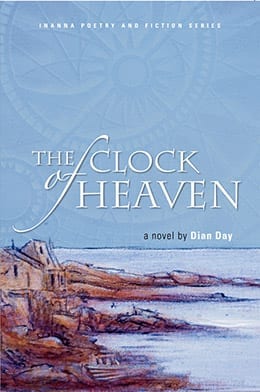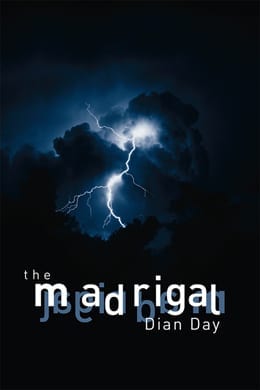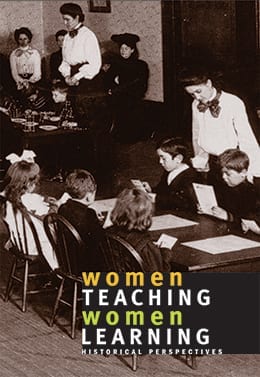2009 IPPY Silver Medal Winner for Literature
& Honourable mention in Globe and Mail’s Top 5 first fiction titles in 2009
Esa Withrod is a young woman struggling over recent events in her personal life—a failed first relationship and resulting pregnancy—as well as the legacy of her desolate upbringing. Eccentric and enigmatic, Esa’s childhood has prepared her to deal with the world with endurance and resilience, but not with joy. She remains “mystified by kindness” and the friendship offered to her by her employer, Merle, a cartographer, and his partner, Daniel. The only bright spot in Esa’s childhood was the three months she spent in a house by the sea with her grandmother in the Maritimes when she was seven years old. Searching for that safe haven she knew as a child, Esa returns to her grandmother’s house to find that it is not possible to go back. Through a spring and summer of traumatic events in what has been her family’s homestead, she discovers the love of family, friendship, and the best of what people in a small community have to offer each other in times of difficulty.
The Clock of Heaven is a compelling first novel by a writer who shows great promise. The protagonist, Esa Withrod, is an unusual character—an intelligent, educated young woman, she is the unwanted child of dysfunctional parents and thus socially withdrawn, finding it difficult to establish ordinary relationships with the people around her. However, her piercing scrutiny of—and obvious love for—the natural world brings that world into focus for the reader in a way that is both exhilarating and haunting. The Clock of Heaven is not a fairy tale. The book will make readers weep in the same way that real life does, but, consistent with true human spirit, hope will be found in the darkest places. There is no final redemption, but Esa at the last is clear that “whatever we can imagine, more is possible.”
“Dian Day writes as if her heart is on fire and the only way to quench it is to make beautiful sentences and lay them end to end until she arrives at the truth. This story burrows into you and makes itself at home there. I couldn’t stop reading it, and I can’t shake Esa Withrod. And now, I can’t wait to see what Dian Day will do next.”
—Stephanie Domet, author of Homing (The Whole Story from the Inside Out)
“Esa. Even her name is minimalist, barebones, hollowed out. Once restrained with a tether, we watch Esa follow the thinnest of frayed lines back, hand over quaking hand, to the heart of humanity. Both stark and lush, The Clock of Heaven is a hymn to resilience. In this simple story, elegantly told, the mystery of Esa’s family draws us along the bumpy, potholed dirt roads to the vast possibilities of hope. Lyrical, lovingly crafted, this novel is a journey to revel in.”
—Linda Little, author of Scotch River








InannaWebmaster –
from PRAIRIE FIRE REVIEW OF BOOKS,
“The Clock of Heaven is the first novel by Nova Scotia author Dian Day, and it’s an excellent debut from beginning to end. It tells the story of Esa Withrod, opening in the past with a short prologue from Esa’s childhood — a time of neglect and abuse, with just one short cheerful interlude with her grandmother, when Esa was seven. The novel then jumps to the present, in which Esa is twenty-five, recovering from a disastrous first relationship with a co-worker, Serge, and pregnant as a result of it… Esa decides to return to her grandmother’s home, hoping to find a safe haven once more…
Dian Day is a skillful writer, giving us just enough details from Esa’s childhood to make the reader marvel that Esa has done as well as she has… I certainly recommend her first one, and look forward to the next.”
from THE GLOBE AND MAIL, January 24, 2009
“A smart and moving debut”
“Consider Esa. Pulled by her alcoholic father from an urban address “crammed full of skinny children, raw-armed mothers… and drunken hangers-on,” she’s plunked on a train to find herself two days later at a large and airy seaside house, enduring a much-needed scrub from her grandmother.
Esa kicked and sputtered, coughed up bathwater onto Gam’s shoulder and allowed herself to be wrapped in a stiff green towel… round and round until she was only a pale aquamarine tube of a child, squeezed out.” That “squeezed out,” so finely attuned to the imaginative leaps and sensory palette of childhood, is one of many quotable takes on Esa in the first pages of this debut…
With nine pages of concise observation, Dian Day’s prologue moves from abandonment, through hope, to a charmed and fleeting happiness, then a grim parental repossession. It’s smartly conceived and movingly executed, and there’s no choice but to read on.…
Day’s descriptive writing, from character traits to scene setting, is crisply evocative… The surging plot trajectory integrates grim humour, uncompromising pathos, an expertly wrangled supporting cast and a subtly woven mystery.”
InannaWebmaster –
The Clock of Heaven by Dian Day
reviewed by James Fisher
The Miramichi Reader – August 2, 2018
http://miramichireader.ca/2018/08/clock-of-heaven-review/
I believe I may have found a new “favourite” writer in Dian Day. I recently read her new book The Madrigal and I was very impressed by it. It was an intriguing read about the life of Frederick, the seventh son (all the other six were twins) and the issues he had to deal with growing up and some that haunted him up to his adult life. Sooner or later, he must deal with them head-on.
With The Clock of Heaven, we have a female protagonist, Esa Withrod who, as the youngest of three sisters (one parallel with Frederick) has grown up unwanted and unloved by her parents, an alcoholic father, the mother looking to escape her dreary home life (more parallels with Frederick). We initially meet Esa as a young child, being dropped off by her father at her paternal grandmother’s house somewhere in a rural Atlantic coast province (I suspect Nova Scotia). Her grandmother (“Gam”) is kind to her and Esa is entranced, not only by the house but by its proximity to the sea. She loves to beach comb and shows her Gam what she has found.
On every windowsill of Gam’s house, and in the corners of every room, and on top of every bureau and desk and end table and sideboard, upstairs and down, there were piles of grey pebbles, moonlit shells, brittle brown seaweeds, and the legs of tiny crabs. It was as if the sea had crept in and scattered its salty treasures throughout the house, and Gam had gone about her business somehow without noticing. The air in the house was pregnant with salt, and every surface was powdered with sand dust.
To a young girl who was used to playing in a dirty yard, tethered to a clothesline, Gam’s house was magical, comforting and safe too. However, her stay ended all too soon when her mother makes an appearance and takes her back home.
The next time we meet Esa, she is a twentysomething woman who is pregnant after a night spent with Serge, her coworker at a small printing company in the city. However, Serge later reveals he has a fiancee, and this is devastating to Esa. Finding she can no longer work in the same office as Serge, she decides to leave and go to Gam’s house to have the baby. She feels it is the only reasonable choice she has, and she is also influenced by her childhood memories of that wonderful place. However, once she gets there, all is not what she recalls. Gam seems different; she wants to be called Alice. The house too has changed for Esa in an appreciable way: it has been swept clean of all the seashore acquisitions.
The rocks and shells and sea anemones and crab legs had all disappeared. The main floor of the house was spotless, with everything precisely in order. The salt dust had been swept away and banished.
Gam/Alice allows her to stay, however, and Esa is apprehensive and continues to have nightmares about the end of the world, either by fire or by ice. Then, a fire does occur in the house and this is the hinge that The Clock of Heaven swings on: nothing is the same after this. Gam/Alice is in the hospital, badly burned, the house is badly damaged by the fire and Esa is an emotional mess. Her life begins a downward spiral into derangement and self-neglect. The baby inside her continues to grow and Esa must survive in the house without electricity or running water. An elderly neighbour named Cyril helps her with the necessities of life, but Esa is determined to survive and driven to discover who the real Alice is and why all her letters to her Gam (with money inside) have been saved and hidden under the carpet for all these years.
The Clock of Heaven was published in 2008 by Inanna Publications, and while I typically only publish reviews on new releases, I had to go back and read Ms. Day’s first book to see how it compared to The Madrigal. I somewhat liked Esa’s story better than Frederick’s, mainly due to the fantastic imagery Ms. Day so effortlessly creates regarding Esa’s stay at her Gam’s house and the state of Esa’s mental decay alongside the physical decay of the house, where the outside soon moves in through a gaping hole that the fire created, creating a virtual Noah’s ark in the process. I was totally drawn into Esa’s plight and continually wondered how she would come out of it if indeed she would. Both of Ms. Day’s books have an element of intrigue about them; something that kept lurking around the fringes of the story, yet imperceptibly moving closer and closer all the time until the issue had to be confronted. I highly recommend Ms. Day’s books as some of the finest examples of literary fiction that I have read. The Clock of Heaven was a 2009 IPPY Award for Literature Silver Medal winner.
Brenda Damen –
The Clock of Heaven. It is a wonderful, at times achingly lonely book.
Two early scenes that especially stood out for me: Esa warms a fallen leaf in the palms of her hands, then wraps it around Serge’s arm. He doesn’t even notice, but goes on talking outwardly from their shared bench in the park, never looking at her. It is such a tender gesture on her part, reminding me of myself at that young age, and it being lost on the recipient.
Serge comes in for an interview and on his way into the interview room, is so nonchalant that he hangs with his hands from the doorframe above for several beats before entering. He is so out-of-keeping with the careful seriousness of the main character that he is practically vibrating with light and she is captivated with the strange and exotic idea of someone who is able to be this relaxed in life.
The writing is so visceral, so strong. The later events are heart wrenching. The writer has her humans luminously in hand when she writes them.
The deep-fetched emotion of the book made a lasting dent upon me.